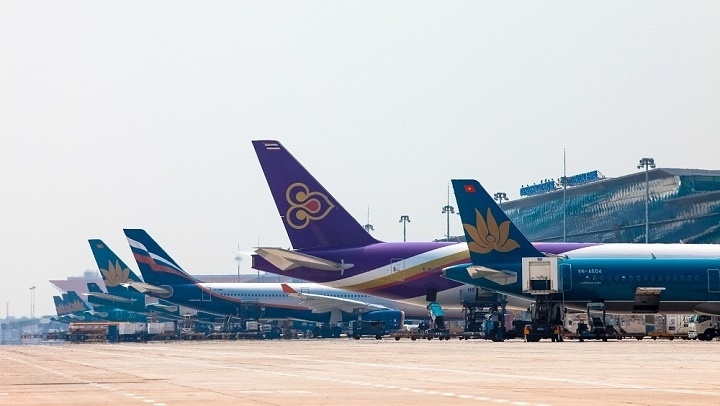The Ministry of Transport (MOT) and the Hanoi government have agreed on the need to develop an expansion plan in order to raise the annual capacity of Noi Bai International Airport to between 80 and 100 million passengers in the future.

Noi Bai Airport could soon be overloaded if no expansion plans are in place.
Minister Truong Quang Nghia stated that if a long-term plan for Noi Bai is not formulated, the airport serving the capital city will soon face the same situation as Ho Chi Minh City’s Tan Son Nhat Airport, which is handling more traffic than its intended capacity.
He told a conference on September 12 that the MOT is struggling hard to rescue Tan Son Nhat, which has a capacity of only 28 million passengers but has to handle a projected 36.5 million in 2017, calling for acceleration in the execution of the Noi Ban plan.
Nghia suggested that the expansion project could go ahead immediately with site clearance undertaken by the Hanoi government.
Hanoi Chairman Nguyen Duc Chung shared Nghia’s view and warned that Noi Bai Airport could risk being overburdened by both passengers and cargo in the next three to five years if the central government fails to make timely investments.
According to Director of the Civil Aviation Authority Dinh Viet Thang, an assessment of the Noi Bai Airport plan will cost an estimated VND30 billion (US$1.32 million) and the agency has proposed hiring foreign consultants for this task.
Currently, ACV, the operator of Noi Bai Airport, is undertaking a project to expand the domestic Terminal 1 so that it can handle 15 million passengers from 2018.
ACV is also planning to expand Terminal 2, which serves international flights, to 15 million passengers in 2020, which means Noi Bai could handle a total of 30 million passengers in the next three years.
It has been projected that Noi Bai Airport’s passenger throughput will reach 23.9 million in 2017, up 16.5% from the previous year. The figure is expected to increase to 34.5 million in 2020, 54 million in 2025 and 65 million in 2030.
Nhan Dan